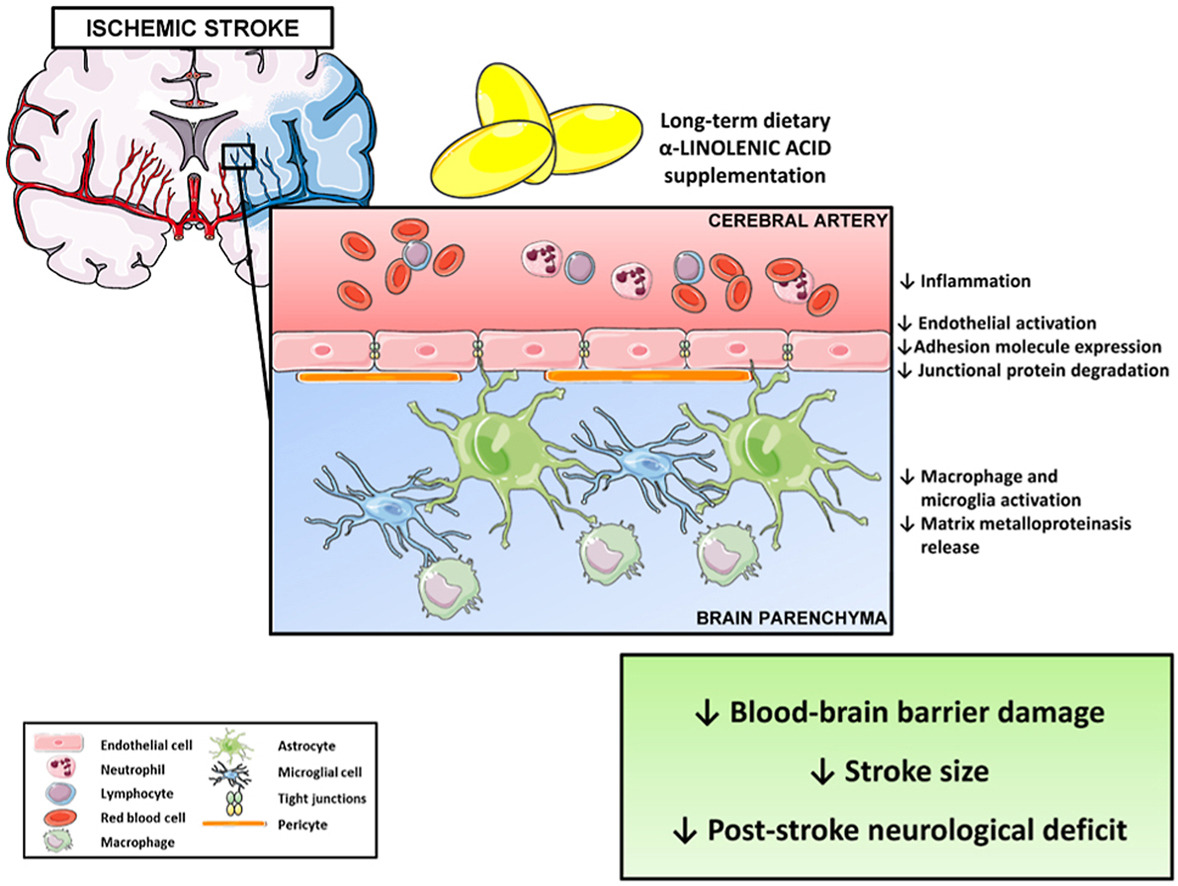Plant-Derived Omega-3-Fatty-Acid to Improve Outcome after Stroke?

In this original article, Nicole R. Bonetti and colleagues investigated the impact of a clinically relevant long-term dietary intervention with the plant-derived omega-3-fatty-acid alpha-linolenic-acid (ALA) on stroke outcome. Six-month-old C57BL/6 wildtype mice were either fed an ALA-rich (high ALA) or a control diet (low ALA) for 12 months. At 18 months, brain ischemia/reperfusion was induced by transient middle cerebral artery occlusion (tMCAO) and functional blood-brain-barrier-(BBB)-permeability and protein expression were assessed by immunohistochemistry. Interestingly, high ALA-fed animals displayed decreased circulating TNF-α-levels and neutrophil-to-lymphocyte-ratios at 18 months. Stroke sizes and neurological dysfunction were significantly reduced in high ALA-fed animals. In concert, functional BBB integrity and occludin endothelial expression were maintained by high ALA supplementation. Additionally, ALA reduced endothelial activation and thus recruitment and activation of macrophages and resident microglia. Finally, a high ALA diet reduced expression of BBB-degrading and neurotoxic MMP-3 and MMP-9 expression. Full study results are available at www.atherosclerosis-journal.com.